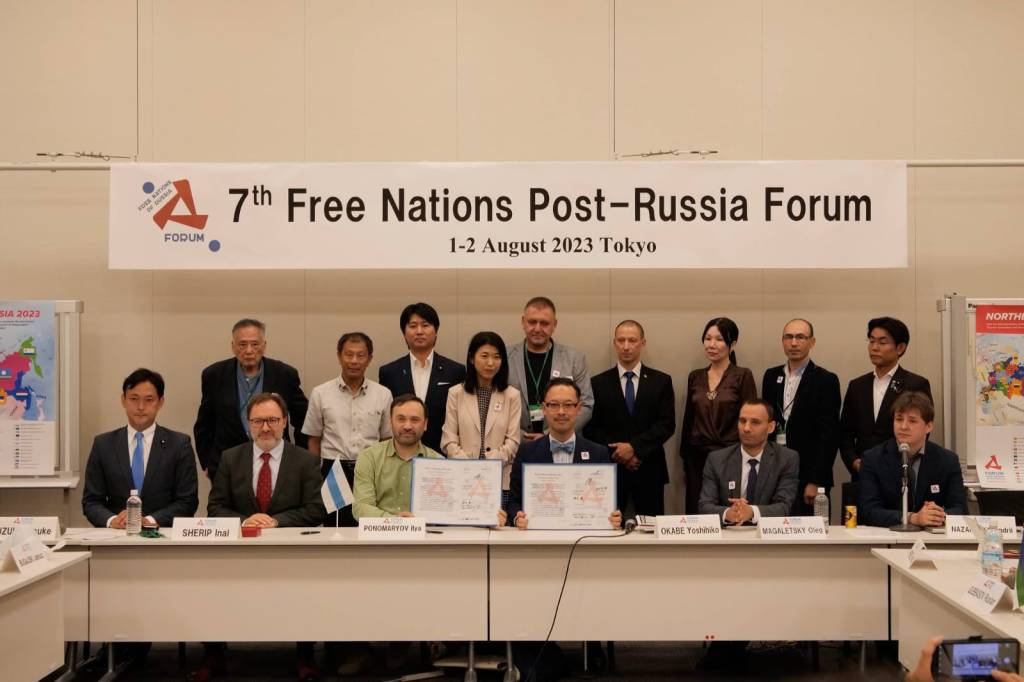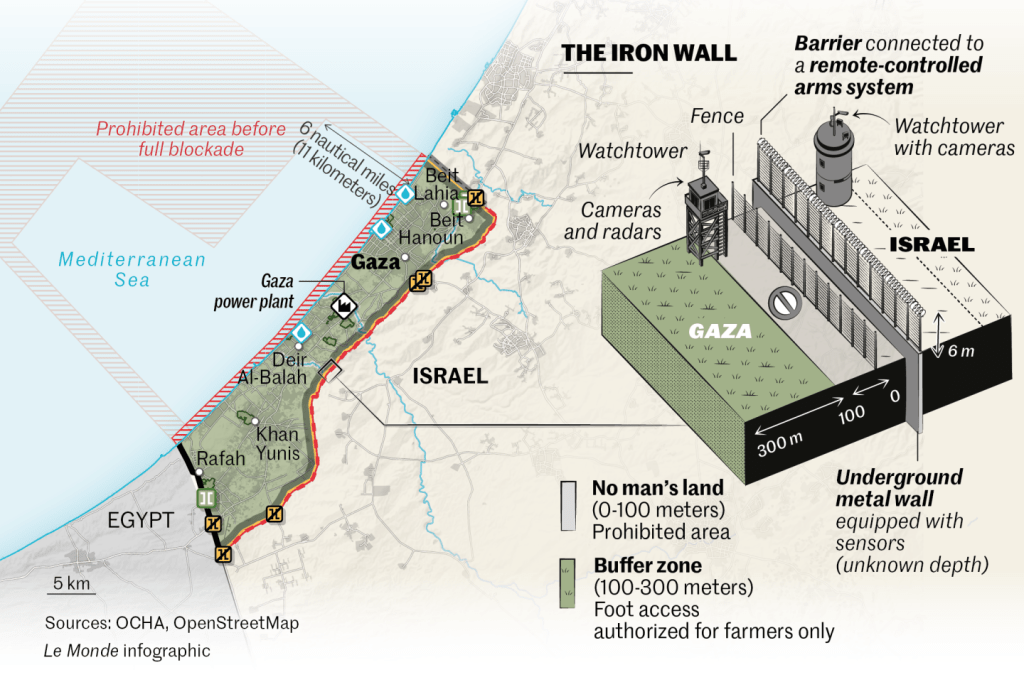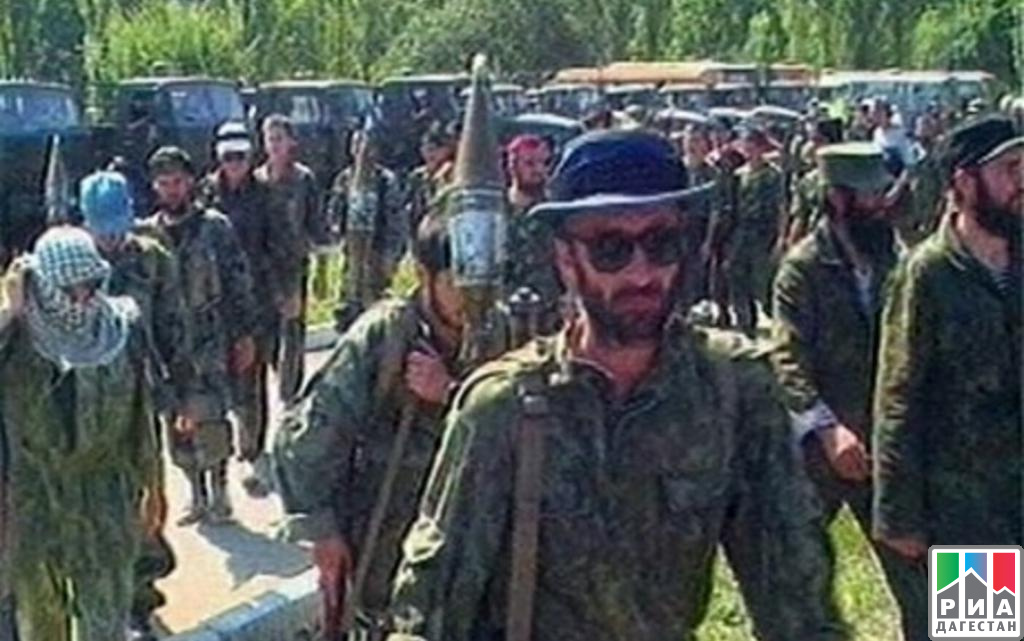Oleg Magaletsky is a specialist in strategic development, organizational changes, innovations, scaling and management of organizations, teams and ideas (both in commercial and non-commercial segments)
Since childhood, he has been interested in history, economics, psychology, literature, political science, and social geography.

When and how did the idea of a forum of free nations arise?
The idea to create a platform of the Free Nations Post-Russia Forum arose as a reflection on the beginning of the full-scale aggression of imperial Muscovy against Ukraine on February 24, 2022, as a result of the analysis of the situation, the confidence increased that the only real option to achieve long-term peace in Europe (and all of Northern Eurasia) is maximally controlled , non-violent and complete Decolonization of the last European empire (currently in the form of a terrorist state, the so-called “Russian Federation”)
From your point of view, Russia is a “nineteenth-century” colonial empire, comparable to the European ones dismantled after the Second World War. In what sense can the Russian Federation be defined as a “colonial empire”?
Although according to the form and declarations de jure imperial Muscovy is the (Russian) Federation (according to the “Constitution”), where the regions have subjectivity and citizens have equal rights, in fact de facto, by all outward signs Muscovy is just a classic continental empire model of the second half of the 19th century, with a clear empire, a metropolis (Moscow) and the rest of the territories (both conventionally “internal” and external) – colonies, whose resources are only exploited by the metropolis for its own “shine” and external aggressions, exercising effective control over the colonies, making it impossible there is sustainable economic development, holding back continuous progress, prohibiting linguistic, cultural and national development/identification.
In fact, the only thing that today unites Sakha and Cherkessia, Buryatia and Ingushetia ets. – this is only a repressive apparatus (“vertical”) and colonial exploitation by the Kremlin. There are no substantive horizontal connections, which is also characteristic of the imperialism of the past century, the last example of which in Europe today remains Russia.
Does supporting the reasons of the nations subjected to Russian colonial rule mean, in your opinion, denying the existence of Russia as such?
To some extent.
The concept of “Russia” is a hybrid, a simulacrum, created purely for propaganda purposes, to justify imperialism and the enslavement of inferior nations and regions.
The de-imperialization of Muscovy will also liberate it, allowing it to turn into a number of independent, compatible and free national and/or regional entities, some of which will be able to return to their own, primarily Finno-Hungarian, roots in their own identification.

Is there, in your opinion, a part of Russian society that would be willing to do without its empire in favor of a community of free nations in a nuclear-free “post-Russian” area?
Yes, there are such people, moreover, their number is not only growing, the very “quality” composition of supporters of the corresponding views and actions is important: these are intellectual, organizational and managerial elites (in the good sense of the word), these are people capable of analysis and understanding cause-and-effect relationships.
It is obvious to them that Putin is not the cause, but the consequence of the problems, and their very essence lies precisely in the imperial nature of the modern “Russian” statehood, which can be changed only by radical (and not cosmetic profanation) changes through de-imperialization and decolonization.
What would be, in your opinion, the advantages for the international community in dismantling the Russian Federation? Isn’t there a risk that Moscow’s enormous nuclear arsenal would end up in the hands of many smaller countries, some of which could become small “North Koreas”?
A huge number of advantages (attaching a separate file with their thesis description), with a proactive approach and controllability of the process of Decolonization of Russia, it will be the most positive geopolitical event since the collapse of the USSR 30 years ago.
As for the “spread” of nuclear weapons, this is one of the main horrors of imperial propaganda, but as the experience of the collapse of the USSR shows – all this can be easily avoided, although free countries are not interested in having nuclear weapons (it is very expensive and impractical), only empires need them.
Both the first and the second factor were devoted to our latest public events, in particular the 8th Free Nations Post-Russia Forum in London and Paris on October 12-14 (attach its summary declaration below)

You introduced the theme of the different behavior of empires compared to nations. Based on the reflections made for Russia, do you think it is correct to say that all empires, albeit in different forms, share the same “original sin”, and that in some way also a certain “imperial mission” which is at the origin of the state of generalized war in which most of the planet finds itself? And if so, do you think it would be appropriate to apply the same “weakening” of imperial ambitions to other “empires” too?
Of course, there are certain general characteristics, but mainly – everything depends on the specific context (time, conditions, system) and is quite individual.
At a certain historical stage, the creation of colonies (in their original form and essence during the times of ancient Greece and Rome) was a progressive and relatively positive phenomenon.
But already at the end of the 19th and the beginning of the 20th century, the creation of colonies in the format of the policy of imperialism with all the rationalizations like “The White Man’s Burden” took on much more grotesque and negative forms (the Belgian Congo can be mentioned as an apotheosis).
Therefore, what Muscovy is doing in the 21st year on the huge expanses from Sakha in the north to Kalmykia in the south, from Keninsberg in the west and to the occupied part of Karafuto in the east – this is an absolutely unacceptable retrograde policy for the time being, which will deal with internal repression and external military expansion from the outside.
Currently, there is no other similar state in the world, but if imperial Muscovy is not stopped now, China, Iran, etc. will most likely follow its example, that is, it may be the beginning of a renaissance of the most disgusting practices of colonial exploitation, authoritarianism and imperialism.
Therefore, it is the complete and final decolonization (preferably controlled and maximally non-leadership) of the so-called “Russian Federation” that is the key to a new architecture of collective sustainable security and peace in the entire northern hemisphere (and an effective method to stop the Moscow-Beijing-Tehran-Pyongyang MBTP Axis as a de facto already existing alliance of tyrants + their satellite regimes Maduro, Lukashenko, Assad, Hamas, Hezbollah, Taliban etc.)
Talking about the benefits that the divestment of the Russian Federation could bring to the world. Russia has been on the brink of collapse several times over the last century. And yet what appears to be its main enemy, the United States, has always acted to preserve its unity. Why do you think there is this strange relationship (if you believe it exists) between these two historical enemies, yet linked by an apparent relationship of mutual necessity? And how could the United States’ point of view on this issue change?
This is not so characteristic of US politics, as it is of bureaucracy and politicians in general – they are a priori extremely inert, not inclined to change and seek to preserve the status quo, even if it is negative (and changes are positive), in particular, this was the case during the collapse of the USSR, when the Bush administration (as well as Reagan before that) did everything possible and impossible to save this communist Frankenstein as a single state. But they were not the only ones who did this (the rest of the free states, from France and Britain to Japan and Canada, acted in fact in the same direction), besides, at that time the USSR was not so much an enemy as a former opponent (and in 1917- 1920 was not an enemy of the USA at all)
i.e., the situation with the desire to “leave Russia united and indivisible” is not an exception (as is the attitude of the US Department of State to this issue), but rather a geopolitical (unfortunately) “rule”: a similar attitude was applied to the division of Yugoslavia (even to Croatia and Slovenia’s “European friends” tried to prevent it from gaining independence), as we see now with regard to the enemies of the free world, China and Iran – the independence of Kurdistan is not recognized, Taiwan is in an unclear status, occupied Tiber and Eastern Turkestan are not being helped, etc.
That is, it is sad. But there is also a positive – regardless of the desire of an inert and spineless bureaucracy and blind politicians without a vision and strategy – the dynamics and logic of history determine the determinism of certain processes, such as the entropy of weak and large empires, so – they are doomed to be dismantled (regardless of the wishes of Bush, Kissinger, Sullivan, Burns, etc.)

What would be the fate of the Russian communities in the new subjects that would be born following the dismantling of the Russian Federation?
Probably, it will be different. Future independent states will have different paths and structures, very different from each other, there will be significant regional integration (with current neighbors outside the perimeter)
Probably, the main trend will be integration and the creation of new political nations, where ethnic origin will not play a key role, and the main factor will be precisely citizenship and values;
Recent history presents us with numerous scenarios of civil war, or wars between states that arose following the collapse of the Soviet system throughout Eastern Europe, as well as in the former USSR. How would it be possible, from your point of view, to prevent the crumbling of the Russian empire from causing a myriad of these small conflicts, or ethnic cleansing against the old Russophile elites who governed, and partly still govern, the territory?
In fact, by the standards of history, the collapse of the USSR was virtually bloodless, violence was minimal. And where it was (as in the case of Bosnia and Kosovo during the breakup of Yugoslavia), their source and cause was precisely the revanchism of the former metropolis (Serbia and Russia, respectively).
Some conflicts in which Russia did not take an open and direct part (such as the Armenian-Azebarjan war) were deepened and artificially supported by it (divide and conquer), so as soon as there were opportunities to reduce its influence, the conflicts quickly escalated (what we actually observe there now).
There are no panaceas, but there are definitely conditions that can reduce the likelihood of conflicts (because the new states are not interested in this, they need to deal with their own state building and development, in particular:
1. Maximum integration of new states into both global and regional institutions with the participation of the leading states of the region (which can be temporary “moderators” in case of problems)
2. Eliminating the grounds for revanchism in the former metropolis through (double-parallel) both economic integration and military deterrence
3. Comprehensive involvement of the free world in the reconstruction programs of the newly independent states of the post-Russian space.

Based on the statements, the forum identifies itself as a non-violent, democratic, anti-authoritarian, as well as anti-imperialist organization. Let’s start from the first of the characteristics mentioned, non-violence as an approach to political struggle. How do you think you will be able to convince the Moscow government to recognize the reasons of the subjugated nations, through the instrument of non-violence?
Many recipes and tools demonstrate the experience of liberating both Central European states and the USSR from communism 30 years ago.
At the same time, our emphasis on nonviolent actions (which have a significant arsenal of acts of sabotage, strikes, manifestos, etc.) does not exclude some elements of violent resistance, but we are talking about the fact that the corresponding acts of direct (in particular, violent) countermeasures should be maximally limited, controlled, justified, effective and targeted.
One of the best ways to do this is the synchronization and coordination of the actions of national liberation and anti-colonial movements – alternate losses in the war against Ukraine and its own size – the empire simply cannot physically prevent simultaneous secessions.
8) The Forum defines itself, as we were saying, as an organization based on respect for democratic principles. What does it mean, from your point of view, to carry out a “democratic” fight against Russian imperialism?
We consider it unnecessary to “reinvent the wheel”, that is, we share all the main liberal and humanistic values characteristic (and underlying) of NATO and the EU (with the exception, unfortunately, of Turkey and Hungary, whose authoritarian governments are increasingly in the opposite direction), in particular – freedom of will, freedom of speech, presumption of innocence, distribution of branches of power, limitation of terms of tenure in public positions, civil and civil accountability, prerogative of international law, absence of censorship, etc.
Being anti-authoritarian is certainly identified among the founding values of the Forum. This is particularly evident in your policy document, in which the forum states that “post-Russian” countries would seek cooperation from all countries, except China, which is currently under an authoritarian regime. How can the Forum ensure that some of the political realities that emerge from the fragmentation of the Russian Federation do not end up becoming bridgeheads for Chinese authoritarianism instead?
Of course, we cannot provide guarantees, as the future is uncertain and realities are dynamic.
However, we can support the existing opportunities and conditions, which is that now the leaders of the national liberation and anti-colonial movements have an anti-China position, and if the states of the free world will maintain open political, economic and cultural ties with it, their integration into global/regional markets and institutions, they will not have no reason to drift away from cooperation with the EU, USA, NATO, Japan, etc. in the direction of the PRC.
One of the most interesting themes regarding your program is that of replacing the “territorial” element, which often inspires policies of greatness to the detriment of neighboring countries, with a system of international law based on populations and on compromise between nations, oriented towards the well-being of peoples rather than nationalist claims. Could you explain this “revolutionary” point of your program better?
In our opinion, it is important to learn from previous experience, trying to avoid repeating mistakes. A very eloquent example is the refancism and revisionism of Serbia, which affected not only Bosnia and Kosovo, but above all itself, after the breakup of Yugoslavia.
In the modern post-industrial world, the size and resources actually do not matter (and if they do, the bigger they are, the more difficult it is), because the main capital is people and their intellectual potential. At the same time, good neighborly relations and open borders create much more opportunities than an additional piece of “historic land” where people will die, military expenditures will increase, and trade will be complicated.
In addition, the very concept of “historical lands”, like “historical justice”, is very subjective and ambiguous, in contrast to international law and already existing borders (in particular, still “internal” administrative ones, as in the case of the Russian Federation), that is, if to summarize, our view is directed to the future, not the past, to collective security and cooperation (in particular with/within the EU and NATO), and not to ethnic irredentism.
Do you believe that the solution of replacing the Russian Federation with an open confederation, modeled on the European Union, for example, or directly integrated into it, could solve the problem of irredentism? And could Moskovia be part of this subject, in your opinion, without returning to hegemonise it in the long term?
Since Russia itself is a 100% artificial and unnatural entity, any attempt to change this Frankenstein will bring the same results.
Post-Russian spaces (in the plural), as well as their future independent states, are completely different and distinct, and each will have its own path – for Buryatia, Sakha, the Pacific Federation, interaction with Japan, Mongolia, Korea, etc. is much more natural, and not Moscow for Bashkortostan, Tatarstan, Astrakhan – with Kazakhstan and Turkey, not Moscow, Ingria and Keningsberg are part of the Baltic region, some states (including the Federation of Zalesye, which will include Moscow as a former metropolis if it chooses Austria as a “benchmark” example) may eventually become members of the EU and NATO, – this is a very likely way)

Another cornerstone of the thought behind the Forum is the rejection of the so-called “Realpolitik”, which leads democratic and liberal regimes to enter into agreements of convenience with authoritarian, or fundamentalist, regimes for tactical purposes. Does the rejection of realpolitik therefore mean embracing a system of ethical values? If so, what could these values be?
Exactly. In the pursuit of minor tactical advantages, cooperating with dictators, murderers and tyrants, we all lose much more by legitimizing and aiding their aggressive and dangerous (especially for the free world, not only their own citizens) systems.
The ethical principles of both internal and external politics have long been formed, this is the basis of our (Western civilization), which has its roots in Athens and Rome, through the Renaissance and, above all, the political ideas of the Enlightenment (Locke, Kant, Montexieu, etc.) to the New Age with the General Declarations and human rights and the founding documents of the United Nations.
To be very general and to cut short, the categorical imperatives formed by Kant should apply to states, as well as to individuals.













